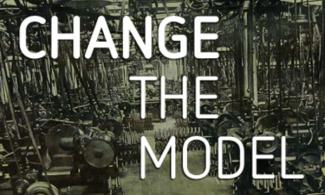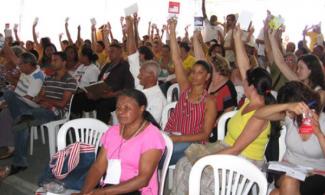Culture Eats Structure 3
In Part III of my long essay What We Need Is Culture I focus on learning deep democratic practices for small groups. This week GEO cross-posted an article from Communities magazine that approaches the same topic in livelier way: “Five Tools to Help Groups Thrive: Increasing Joy and Effectiveness in Community” by Melanie Rios.
She opens by describing a situation all of us have experienced more often than we care to remember:
I’ve noticed similar themes that underlie struggles within communities during the decades I’ve lived and worked in these groups. Good people get together with good intentions, and then find themselves wallowing in the doldrums of unresolved conflict, fear, isolation, and ineffective systems.
Her article is built around three cultural characteristics and five process tools for realizing them. The characteristics and tools:
· They each have a clearly articulated evolutionary purpose
§ A Question Process from Moving Icebergs
· They welcome the whole self
§ The Zegg Forum
· They are governed through self-management
§ Frequent Feedback
Frederic Laloux’s book, Reinventing Organizations, about Teal organizations, is a major source for her practice and her article. However, the lighting of her fire, came from another source:
I was moved by a permaculture convergence keynote address Doug Bullock gave about 10 years ago in which he said that we have the technological knowledge to solve the survival challenges humans and other beings are facing, and that what is limiting our success is our ability to work effectively with each other. I decided in that moment to be a practitioner of social permaculture, dedicated to helping groups that care about people and our planet to get more done while having fun.



Add new comment